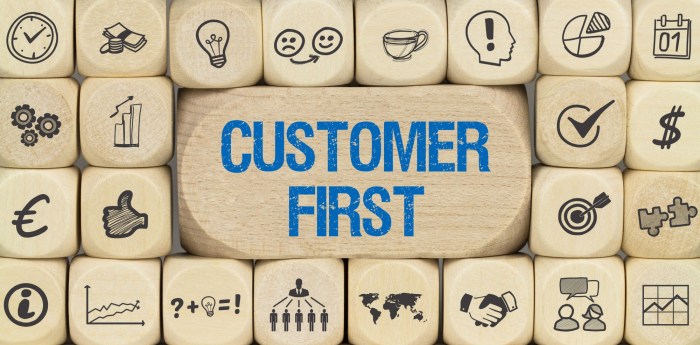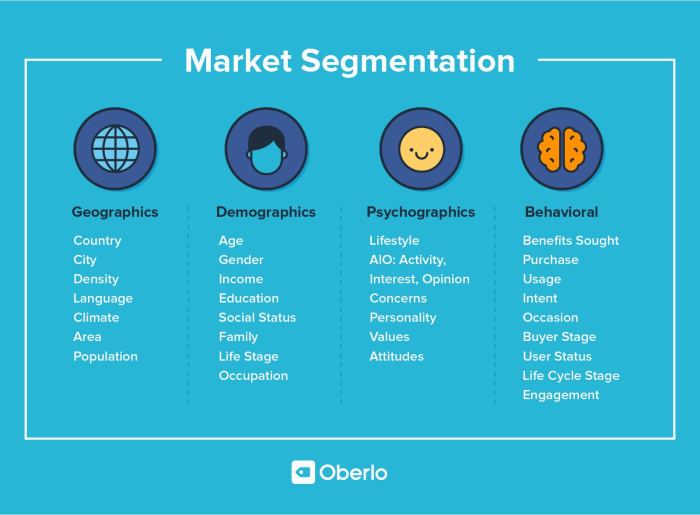The Future of CRM in Business Shaping Customer Engagement
The Future of CRM in Business is a landscape marked by rapid innovation, driven by the convergence of technology and evolving customer expectations. As businesses navigate this dynamic environment, CRM is no longer just a tool for managing customer data; it’s becoming the core of customer-centric strategies, enabling businesses to build meaningful relationships, personalize experiences, and ultimately, drive success.
This evolution is fueled by emerging trends like artificial intelligence, data analytics, and omnichannel integration. These technologies empower businesses to understand customer needs at a deeper level, predict behavior, and deliver personalized experiences across every touchpoint. The result? Enhanced customer engagement, improved efficiency, and a competitive edge in today’s market.
The Evolution of CRM
CRM, or Customer Relationship Management, has evolved significantly over the years, transforming from simple customer databases to sophisticated, cloud-based platforms that drive business growth. This evolution has been driven by changing customer needs, technological advancements, and the ever-increasing importance of customer experience in today’s competitive landscape.
Early Customer Databases
Early CRM systems emerged in the 1970s and 1980s, primarily as customer databases designed to manage and track customer information. These systems were typically built on mainframe computers and focused on basic functionalities like storing customer contact details, purchase history, and order status. While these early systems were valuable for organizing customer data, they lacked the advanced features and capabilities of modern CRM platforms.
The Rise of Automated CRM Systems
The 1990s saw the rise of automated CRM systems that integrated various functionalities like sales automation, marketing automation, and customer service. These systems were built on personal computers and offered features like lead management, sales forecasting, and campaign management. The introduction of these automated systems significantly improved efficiency and effectiveness in managing customer relationships.
The Emergence of Cloud-Based CRM
The 21st century ushered in the era of cloud-based CRM. Cloud-based CRM platforms offer several advantages over traditional on-premise systems, including scalability, affordability, and accessibility. These platforms are hosted on remote servers and can be accessed from any device with an internet connection. This shift to cloud-based solutions has made CRM more accessible to businesses of all sizes and has accelerated the adoption of CRM technologies.
Key Milestones in CRM History
The evolution of CRM has been marked by several key milestones that have significantly impacted businesses:
- 1970s-1980s: The emergence of early customer databases on mainframe computers. These systems laid the foundation for CRM by enabling businesses to organize and track customer information.
- 1990s: The introduction of automated CRM systems on personal computers. These systems integrated functionalities like sales automation and marketing automation, improving efficiency and effectiveness in managing customer relationships.
- 2000s: The rise of cloud-based CRM platforms. Cloud-based solutions offered scalability, affordability, and accessibility, making CRM more accessible to businesses of all sizes.
- 2010s-Present: The integration of artificial intelligence (AI) and machine learning (ML) into CRM platforms. AI and ML capabilities enable CRM systems to analyze vast amounts of data, personalize customer experiences, and automate tasks, further enhancing efficiency and effectiveness.
CRM Adapts to Changing Customer Needs
CRM has continuously adapted to changing customer needs and technological advancements. Modern CRM platforms are designed to provide a holistic view of the customer journey, encompassing all touchpoints across multiple channels. This includes:
- Personalized Customer Experiences: CRM systems leverage data analytics to understand customer preferences and behavior, enabling businesses to personalize marketing messages, product recommendations, and customer service interactions.
- Multi-Channel Support: Modern CRM platforms support multiple communication channels, including email, chat, social media, and mobile apps. This ensures businesses can engage with customers on their preferred channels and provide a seamless customer experience.
- Real-Time Insights: CRM systems provide real-time insights into customer behavior and engagement. This allows businesses to identify opportunities for improvement and proactively address customer needs.
- Data Integration: Modern CRM platforms integrate with other business systems, such as marketing automation, e-commerce, and customer support platforms. This allows businesses to have a unified view of customer data and optimize their operations.
Emerging Trends Shaping the Future of CRM

The CRM landscape is undergoing a rapid transformation, driven by emerging technologies and evolving customer expectations. Several trends are shaping the future of CRM, influencing how businesses interact with their customers and manage their relationships.
Artificial Intelligence (AI)
AI is revolutionizing CRM by automating tasks, personalizing customer experiences, and providing valuable insights. AI-powered CRM systems can analyze vast amounts of customer data to identify patterns and predict future behavior. This information can be used to:
- Personalize marketing campaigns and product recommendations.
- Automate customer service interactions through chatbots and virtual assistants.
- Optimize sales processes by identifying high-potential leads and suggesting the best sales strategies.
For example, companies like Amazon and Netflix use AI to personalize recommendations and improve customer satisfaction. Amazon’s AI-powered recommendation engine suggests products based on past purchases and browsing history, while Netflix’s algorithm tailors content recommendations to individual user preferences.
Data Analytics
Data analytics plays a crucial role in modern CRM by providing insights into customer behavior, market trends, and business performance. CRM systems can collect and analyze data from various sources, including website traffic, social media interactions, and customer support tickets. This data can be used to:
- Identify customer segments and tailor marketing campaigns accordingly.
- Track customer lifetime value and optimize customer retention strategies.
- Measure the effectiveness of CRM initiatives and identify areas for improvement.
Companies like HubSpot and Salesforce utilize data analytics to provide businesses with comprehensive insights into their customer data. HubSpot’s analytics platform helps businesses track website traffic, lead generation, and marketing campaign performance, while Salesforce’s data analytics tools offer insights into customer behavior, sales pipeline, and service operations.
Omnichannel Integration
Omnichannel integration is essential for creating seamless customer experiences across multiple touchpoints. Customers expect consistent interactions regardless of the channel they use to interact with a business. CRM systems can help businesses integrate their different channels, such as websites, mobile apps, social media, and email, to provide a unified customer experience. This allows businesses to:
- Track customer interactions across all channels and provide personalized support.
- Offer consistent messaging and branding across different touchpoints.
- Enable customers to seamlessly transition between channels without losing context.
For example, companies like Starbucks and Sephora have successfully implemented omnichannel strategies. Starbucks’ mobile app allows customers to order and pay for their coffee ahead of time, while Sephora’s online platform offers personalized beauty recommendations and allows customers to book appointments in-store.
The Role of Artificial Intelligence in CRM

Artificial intelligence (AI) is revolutionizing the way businesses interact with their customers, transforming the CRM landscape. AI-powered CRM solutions are enhancing customer experiences, streamlining operations, and driving business growth.
Personalization and Customer Experience
AI empowers CRM systems to deliver highly personalized customer experiences. By analyzing vast amounts of customer data, AI algorithms can identify patterns and preferences, enabling businesses to tailor their interactions, marketing messages, and product recommendations to individual customers. For instance, AI can personalize website content, email campaigns, and even product suggestions based on a customer’s browsing history, purchase history, and demographic information.
This level of personalization enhances customer satisfaction and loyalty, leading to increased engagement and conversions.
Automation and Efficiency
AI-powered CRM solutions automate repetitive tasks, freeing up human resources to focus on more strategic initiatives. AI can automate tasks such as lead qualification, appointment scheduling, and data entry, significantly improving operational efficiency. For example, AI-powered chatbots can handle routine customer inquiries, providing instant responses and resolving issues without human intervention. This automation not only saves time and resources but also ensures consistency and accuracy in customer interactions.
Predictive Analytics and Data-Driven Decision-Making
AI’s ability to analyze large datasets enables CRM systems to provide valuable insights and predictions. Predictive analytics powered by AI can forecast customer behavior, identify potential churn risks, and predict sales opportunities. For instance, AI can analyze customer data to predict which customers are likely to make a purchase, allowing businesses to target their marketing efforts effectively. By leveraging these insights, businesses can make data-driven decisions that optimize customer engagement, improve marketing campaigns, and drive revenue growth.
Examples of AI Applications in CRM
- Chatbots: AI-powered chatbots provide instant customer support, answer frequently asked questions, and guide customers through self-service options. They are available 24/7, improving customer satisfaction and reducing wait times.
- Sentiment Analysis: AI algorithms can analyze customer feedback, social media posts, and online reviews to gauge customer sentiment. This allows businesses to understand customer perceptions, identify areas for improvement, and address negative feedback promptly.
- Predictive Lead Scoring: AI models can analyze lead data to predict the likelihood of conversion. This allows sales teams to prioritize leads with the highest potential, improving sales efficiency and conversion rates.
Data Analytics and Customer Insights: The Future Of CRM In Business
In today’s data-driven world, CRM platforms are increasingly relying on data analytics to gain deeper insights into customer behavior and preferences. By harnessing the power of data, businesses can create personalized customer experiences, optimize marketing campaigns, and drive revenue growth.
Data Analytics in CRM
Data analytics plays a crucial role in CRM by providing businesses with a comprehensive understanding of their customer base. By analyzing customer data, businesses can identify patterns, trends, and insights that can be leveraged to improve customer engagement and satisfaction.
- Customer Segmentation: Data analytics enables businesses to segment their customer base into distinct groups based on demographics, purchasing behavior, and other relevant factors. This allows for targeted marketing campaigns and personalized customer experiences.
- Predictive Analytics: By analyzing historical data, CRM platforms can predict future customer behavior, such as churn risk or product purchase likelihood. This allows businesses to proactively address potential issues and optimize customer retention strategies.
- Customer Journey Mapping: Data analytics helps businesses visualize the customer journey, identifying touchpoints and pain points along the way. This allows for the optimization of customer interactions and the creation of seamless experiences.
Leveraging Data for Personalized Customer Journeys, The Future of CRM in Business
CRM platforms can leverage data to create personalized customer journeys that cater to the unique needs and preferences of each individual. By analyzing customer data, businesses can identify patterns and trends that can be used to tailor marketing messages, product recommendations, and customer service interactions.
- Personalized Recommendations: By analyzing past purchase history and browsing behavior, CRM platforms can recommend products or services that are likely to be of interest to individual customers.
- Targeted Marketing Campaigns: Data analytics enables businesses to segment their customer base and target specific groups with tailored marketing messages and offers.
- Dynamic Content Personalization: CRM platforms can personalize website content, email campaigns, and other marketing materials based on individual customer preferences and interests.
Data Analysis Techniques in CRM
| Data Analysis Technique | Application in CRM |
|---|---|
| Descriptive Analytics | Analyzing past customer data to understand customer behavior, preferences, and trends. |
| Diagnostic Analytics | Identifying the root causes of customer churn, product dissatisfaction, or other issues. |
| Predictive Analytics | Forecasting future customer behavior, such as purchase likelihood or churn risk. |
| Prescriptive Analytics | Providing recommendations for actions to take based on data analysis, such as personalized product recommendations or targeted marketing campaigns. |
Omnichannel Customer Experience

In the contemporary business landscape, characterized by an increasingly interconnected and digital-centric consumer base, businesses are prioritizing seamless customer experiences across all touchpoints. This necessitates the adoption of an omnichannel CRM approach, which aims to unify customer interactions across multiple channels, including websites, mobile apps, social media, email, and physical stores.
Omnichannel CRM: A Holistic Approach
Omnichannel CRM goes beyond simply integrating different channels; it seeks to create a cohesive and personalized experience for customers, regardless of their chosen interaction method. This means that customer data is centralized and accessible across all channels, allowing businesses to provide consistent and relevant interactions.
Omnichannel CRM is about creating a unified customer experience, regardless of the channel they use.
Examples of Omnichannel CRM Implementation
Several businesses have successfully implemented omnichannel CRM strategies, leading to enhanced customer satisfaction and loyalty.
- Amazon: Amazon’s omnichannel approach is exemplified by its seamless integration of online and offline experiences. Customers can browse products online, order them for delivery, and return them at physical Amazon Go stores, all while maintaining a consistent experience and access to their purchase history.
- Starbucks: Starbucks leverages its mobile app to offer personalized recommendations, mobile ordering, and loyalty programs. Customers can also use the app to manage their orders, track their rewards, and access exclusive content, creating a cohesive and engaging experience across multiple touchpoints.
- Sephora: Sephora’s omnichannel strategy focuses on providing personalized beauty consultations and product recommendations across channels. Customers can book appointments online, receive virtual consultations, and use the app to scan products and learn more about them, all while benefiting from a consistent brand experience.
Key Considerations for Designing an Omnichannel CRM Approach
Implementing an effective omnichannel CRM strategy requires careful consideration of several factors.
- Customer Journey Mapping: Understanding the customer journey across all touchpoints is crucial for identifying areas for improvement and optimizing the overall experience. This involves mapping out customer interactions, identifying pain points, and understanding customer needs and expectations.
- Data Integration and Centralization: Integrating data from multiple channels is essential for creating a unified customer view. This allows businesses to track customer interactions, preferences, and purchase history across all touchpoints, enabling personalized and relevant communication.
- Consistent Brand Experience: Maintaining a consistent brand voice and messaging across all channels is critical for building trust and loyalty. This includes using similar branding elements, tone of voice, and customer service standards across all touchpoints.
- Personalized Communication: Leveraging customer data to personalize communication is essential for providing relevant and engaging experiences. This includes sending targeted promotions, offering personalized product recommendations, and providing tailored support.
- Real-Time Analytics: Monitoring customer interactions and analyzing data in real-time allows businesses to identify trends, understand customer behavior, and make data-driven decisions to optimize the omnichannel experience. This can include tracking website traffic, analyzing social media sentiment, and monitoring customer feedback.
CRM and Customer Success
In today’s competitive landscape, businesses are increasingly recognizing the importance of customer success as a key driver of growth and profitability. CRM systems have evolved to play a pivotal role in this shift, empowering organizations to cultivate long-term customer relationships and maximize their value.
Customer Success Strategies Enabled by CRM
CRM systems provide a comprehensive platform for understanding customer needs, anticipating challenges, and delivering proactive support. By leveraging data insights, CRM enables organizations to implement effective customer success strategies.
- Personalized Customer Journeys: CRM empowers businesses to create tailored customer journeys based on individual preferences, purchase history, and engagement levels. This personalized approach enhances customer satisfaction and loyalty.
- Proactive Support and Engagement: By analyzing customer data, CRM systems can identify potential issues or opportunities for improvement. This allows businesses to provide proactive support, addressing concerns before they escalate and offering timely solutions.
- Customer Segmentation and Targeting: CRM facilitates customer segmentation based on demographics, behavior, and other relevant factors. This enables businesses to target specific customer groups with tailored marketing campaigns and offers, maximizing campaign effectiveness.
- Customer Feedback and Sentiment Analysis: CRM tools enable businesses to gather and analyze customer feedback through surveys, reviews, and social media monitoring. This provides valuable insights into customer sentiment, helping businesses identify areas for improvement and enhance their offerings.
Measuring and Improving Customer Satisfaction
CRM systems provide a range of tools and techniques for measuring and improving customer satisfaction.
- Customer Satisfaction Surveys: Regular customer satisfaction surveys allow businesses to gauge customer sentiment and identify areas for improvement. These surveys can be integrated into CRM systems for automated distribution and analysis.
- Net Promoter Score (NPS): NPS is a widely used metric for measuring customer loyalty and advocacy. CRM systems can automate NPS surveys and track customer responses, providing valuable insights into customer satisfaction levels.
- Customer Lifetime Value (CLTV): CRM systems can calculate CLTV, a measure of the total revenue a customer is expected to generate over their relationship with the business. By optimizing CLTV, businesses can focus on retaining high-value customers and maximizing their profitability.
- Customer Churn Analysis: CRM systems can analyze customer churn data to identify patterns and root causes of customer attrition. This information can be used to implement strategies for reducing churn and improving customer retention.
Examples of CRM Tools for Customer Success
Several CRM platforms offer dedicated features and tools for driving customer success.
- Salesforce: Salesforce offers a comprehensive suite of customer success tools, including customer journey mapping, proactive support automation, and customer feedback analysis.
- Microsoft Dynamics 365: Microsoft Dynamics 365 provides a range of customer success capabilities, including customer segmentation, personalized marketing automation, and customer churn prediction.
- HubSpot: HubSpot offers a user-friendly CRM platform with features for customer success, including customer onboarding, support ticketing, and customer feedback management.
The Future of CRM
The future of CRM is a landscape brimming with exciting possibilities, driven by the convergence of evolving customer expectations, emerging technologies, and innovative business models. As technology continues to advance at a rapid pace, businesses are presented with a unique opportunity to leverage CRM in ways that were previously unimaginable. This chapter delves into key predictions for the future of CRM, exploring the impact of these trends on businesses and their CRM strategies.
Predictions and Possibilities
The future of CRM is a dynamic landscape shaped by evolving customer expectations, the emergence of new technologies, and the adoption of innovative business models. These factors will influence how businesses interact with their customers, leading to significant changes in CRM strategies.
- Hyper-personalization: Customers are increasingly demanding personalized experiences, expecting businesses to understand their individual needs and preferences. CRM systems will play a pivotal role in delivering this personalization, leveraging data analytics to tailor interactions and offer relevant products and services. For example, Amazon’s personalized recommendations based on past purchases and browsing history are a testament to the power of hyper-personalization.
- The Rise of AI-Powered CRM: Artificial intelligence (AI) is poised to revolutionize CRM, enabling businesses to automate tasks, improve customer service, and gain deeper insights into customer behavior. AI-powered chatbots can handle routine inquiries, freeing up human agents to focus on more complex issues. Predictive analytics can anticipate customer needs and proactively offer solutions, enhancing customer satisfaction.
- The Integration of CRM with Other Business Systems: The future of CRM lies in its seamless integration with other business systems, such as marketing automation, sales force automation, and customer support platforms. This integration will create a unified view of the customer across all touchpoints, enabling businesses to provide a more cohesive and personalized experience.
- The Importance of Data Security and Privacy: As businesses collect and leverage increasingly vast amounts of customer data, data security and privacy will become paramount. CRM systems will need to incorporate robust security measures to protect sensitive information and comply with evolving data privacy regulations.
- The Emergence of New Business Models: The future of CRM will see the emergence of new business models, such as subscription-based CRM services and cloud-based CRM solutions. These models will offer greater flexibility and scalability, allowing businesses to adapt to changing needs and market conditions.
Impact on Businesses and CRM Strategies
The predictions Artikeld above will have a profound impact on businesses and their CRM strategies. Businesses will need to adapt their CRM systems and processes to embrace these trends and remain competitive in the evolving market.
- Enhanced Customer Engagement: AI-powered CRM systems will enable businesses to personalize interactions, anticipate customer needs, and provide proactive support, leading to enhanced customer engagement and loyalty.
- Improved Operational Efficiency: Automation and AI will streamline CRM processes, reducing manual tasks and freeing up employees to focus on higher-value activities. This will lead to improved operational efficiency and cost savings.
- Data-Driven Decision Making: CRM systems will provide businesses with valuable customer insights, enabling them to make data-driven decisions about product development, marketing campaigns, and customer service strategies.
- Increased Customer Satisfaction: By providing personalized experiences, anticipating customer needs, and offering seamless support, businesses can significantly improve customer satisfaction and loyalty.
- Competitive Advantage: Businesses that embrace the future of CRM and leverage its capabilities will gain a significant competitive advantage, outperforming their rivals in terms of customer engagement, operational efficiency, and profitability.
Key Trends and Their Implications
The table below summarizes key trends shaping the future of CRM and their potential implications for businesses.
| Trend | Implications for CRM |
|---|---|
| Hyper-personalization | Increased need for data analytics, personalized communication, and tailored customer experiences. |
| AI-Powered CRM | Automation of tasks, improved customer service, predictive analytics, and deeper customer insights. |
| Integration with Other Business Systems | Unified view of the customer, improved data sharing, and enhanced customer experience across touchpoints. |
| Data Security and Privacy | Robust security measures, compliance with data privacy regulations, and ethical data management practices. |
| New Business Models | Flexibility, scalability, and cost-effectiveness through subscription-based and cloud-based CRM solutions. |
As CRM continues to evolve, businesses must embrace the power of data, leverage the capabilities of AI, and prioritize customer-centricity. By adapting to these trends, businesses can transform CRM from a mere system to a strategic advantage, building stronger relationships, driving customer loyalty, and ultimately, securing a brighter future in a rapidly changing world.
FAQ Compilation
What are the key benefits of AI-powered CRM?
AI-powered CRM offers significant benefits, including personalized customer experiences, automated tasks, predictive analytics for improved decision-making, and increased efficiency in customer service operations.
How can businesses implement an effective omnichannel CRM strategy?
Businesses can implement an effective omnichannel CRM strategy by ensuring a consistent customer experience across all channels, integrating data from different touchpoints, and providing personalized interactions based on customer preferences.
What are the potential challenges of adopting AI in CRM?
While AI offers significant advantages, businesses should be aware of potential challenges such as data privacy concerns, ethical considerations, and the need for skilled professionals to manage AI-powered CRM systems.
